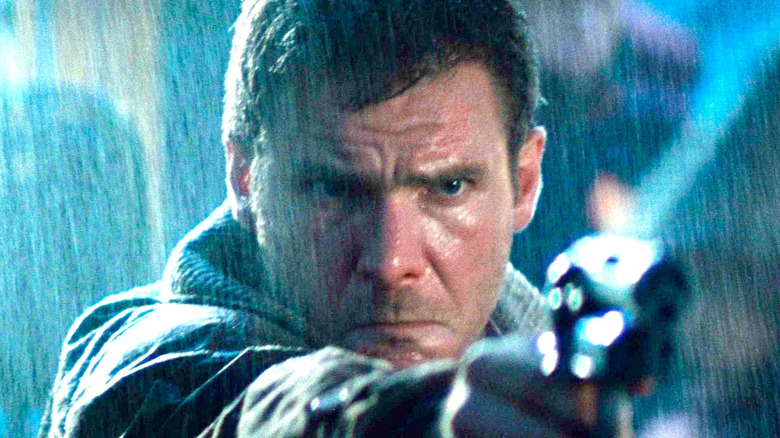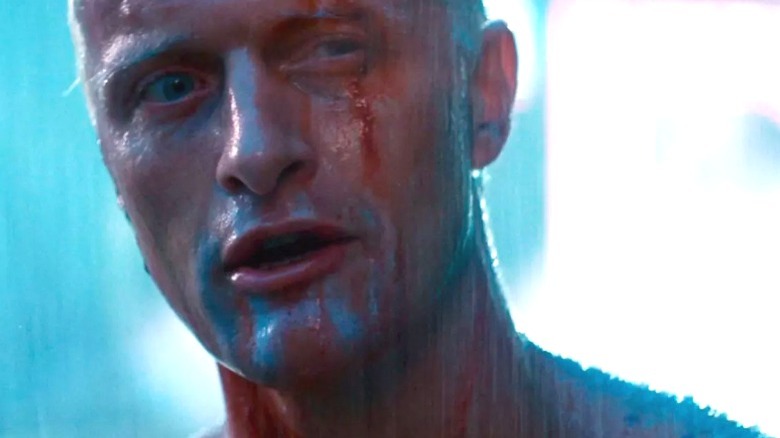The Improvised Rutger Hauer Line That Changed Blade Runner Forever
"Blade Runner" is thought to be one of the greatest science fiction films ever made (via Empire). Standing as a career-defining directorial effort from Ridley Scott, it struck a chord with many, including "Dune" and "Arrival" director Denis Villeneuve, who would revisit the iconic world decades later. "Blade Runner" is the eye-watering neo-noir story of a detective named Deckard (Harrison Ford) on the hunt for a band of runaway androids who he is hired to track down and kill. The leader of these "more human than human" models is Batty (the late Rutger Hauer), the final target for Ford's Deckard.
Their showdown at the end of the movie is one for the ages, as Hauer's escapee plays cat and mouse with our hero, fully aware that he's reaching the end of his programmed lifespan. For many, the most hair-raising moment is seeing Batty finally come to accept his end with a monologue that has now become one of the most beloved in cinema history. What's even more impressive, though, is that the icing on this iconic cake came from Hauer himself.
The iconic addition of 'tears in rain' in Batty's final moment came from Hauer
In an interview with Radio Times in 2017, just before Denis Villeneuve's "Blade Runner 2049" was released, Hauer explained how the iconic closing speech of his character in the original film was an amalgamation of both what was on the page and what he came up with before filming the scene. Talk of C-beams glittering in the darkness and attack ships at the Tannhäuser Gate were planned. However, the addition of "All those moments will be lost in time, like tears in rain" came from Hauer himself, pushed by the filmmaker who was keen to see some magic happen.
Hauer explained that "[Ridley] said, 'This is what I want to do – bring me anything you can come up with, and I'll take it on if I like it.'" What he settled on was cinematic gold, but even years later, Hauer was humble over his contribution. "For the end line I was hoping to come up with one line where Roy, because he understands he has very little time," Hauer explained. "[He] expresses one bit of the DNA of life that he's felt. How much he liked it. Only one life." This film scene was synonymous with the actor until his passing in 2019, and it was even mentioned in his obituary notice (via Legacy.com). As it turns out, this is one moment that wasn't lost.

